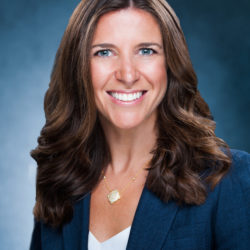A proactive approach to inflationary rates

By Kim Harding
With the recent spike in interest rates by the Federal Reserve, Americans are feeling more pressure in their wallets as inflationary rates make waves across all industries. More than ever, clients are turning to us to ensure their family’s funds are allocated with these price spikes in mind.
Amid economic turbulence, it is especially crucial to take a proactive approach to evaluating a client’s cash flow – one that accounts for rising interest rates and increased cost of living. Using cash flow (and tough love) as a guide, advisors can help clients navigate difficult decisions and prepare them for their next venture, whether that’s buying a home, taking a vacation and everything in between.
Cash flow is king
To best aid clients with their next financial venture, first establish a clear picture of their family’s cash flow, which details where money comes in and in what ways the money is being spent. To start, determine the client’s income stream, which includes any investment portfolios, anticipated income and paychecks. Once this is established, identify the client’s anticipated costs for each month.
Start with simple questions like:
• How much is your monthly rent/mortgage payment?
• How much do you spend on average for groceries?
Build from there with questions like:
• How much do you anticipate spending on insurance this year?
• How much would you plan to donate to charitable causes in a year?
• How much do you need to save in the case your water heater would need replaced?
This helps clients identify a holistic view of all expenditures beyond the basics like groceries or rent. By compiling a clear picture of where their money is spent monthly, you can adjust spending – and saving – to meet upcoming goals.
Clarifying cash flow also helps you identify problem areas within your client’s expenses. Maybe they express concern over rising grocery bills and gas prices. Take time to compare how much they anticipated to spend per month on daily expenses versus their actual cost and adjust the rest of the allotment based on price increases.
This may seem like basic accounting work; however not all clients keep a close eye on where their income is going each month. By helping them understand the need for close monitoring of cash flow and frequent budget updates, you will ensure your client has a better chance of attaining the goals for their next big venture.
Evaluating financial goals
As clients look to big milestones and long-term financial goals, cash flow is key to identifying what is fiscally responsible and possible. This is especially true when that milestone is purchasing a home in a turbulent housing market with soaring mortgage rates. Understanding the importance of a strong financial foundation will help clients avoid jumping into any decision too quickly.
For some clients, you may need to use tough love. Numbers don’t lie, and maybe their current cash flow doesn’t allow for a new home during the mortgage rate spike. For others, suggest that they “practice” a mortgage payment by saving the extra money needed in a housing fund. This helps the client see what needs to be adjusted in their cash flow to make this payment possible before they are locked into a 30-year mortgage. If all goes well, they can use these savings toward a down payment, and if they decide this isn’t the best time to buy, the savings are there for an emergency.
Inflation is affecting everyone, but there are ways to help your clients feel more at ease during times of rising prices. An established plan based on their income and expenses is a surefire way to have tough conversations with clients based on what is possible for them, whether it be executing on their next big venture or simply towards more savings.
This tough love may seem difficult in the moment, but it will set the client up for success in a turbulent economy and build a long-lasting trust in your abilities and counsel.
About the Author
Kim Harding is a 17-year MDRT member with Top of the Table accolades. A co-founder of Harding Financial & Insurance in Massachusetts, Harding has nearly 20 years of experience in the financial service and insurance industry. Having earned CFP, CLU and CLTC certifications, Harding has also spoken at the MDRT Annual Meeting and is a board member of Life Happens.






Despite economic volatility, retirement ‘super savers’ stick to priority, study finds
Transamerica program aids small businesses in employee retirement and health savings
Annuity News
- Great-West Life & Annuity Insurance Company Trademark Application for “EMPOWER BENEFIT CONSULTING SERVICES” Filed: Great-West Life & Annuity Insurance Company
- 2025 Top 5 Annuity Stories: Lawsuits, layoffs and Brighthouse sale rumors
- An Application for the Trademark “DYNAMIC RETIREMENT MANAGER” Has Been Filed by Great-West Life & Annuity Insurance Company: Great-West Life & Annuity Insurance Company
- Product understanding will drive the future of insurance
- Prudential launches FlexGuard 2.0 RILA
More Annuity NewsHealth/Employee Benefits News
Life Insurance News
- 2025 Top 5 Life Insurance Stories: IUL takes center stage as lawsuits pile up
- Private placement securities continue to be attractive to insurers
- Inszone Insurance Services Expands Benefits Department in Michigan with Acquisition of Voyage Benefits, LLC
- Affordability pressures are reshaping pricing, products and strategy for 2026
- How the life insurance industry can reach the social media generations
More Life Insurance NewsProperty and Casualty News
- Enlyte to Acquire PartsTrader, Complementing Mitchell’s Auto Physical Damage Technology Solutions: Enlyte
- TOP DEMOCRATS ON ENVIRONMENT, FINANCE, AND BANKING COMMITTEES LAUNCH INVESTIGATION INTO INSURANCE RATING COMPANY DEMOTECH, EVALUATIONS OF INSURER FINANCIAL STABILITY AMID GROWING CLIMATE RISK
- It’s the most accident-prone time of the year
- PUBLIC INVITED TO REVIEW FLOOD MAPS IN FRANKLIN COUNTY
- $100,000 insurance policy required for ‘dangerous dog’ owners in Redlands
More Property and Casualty News